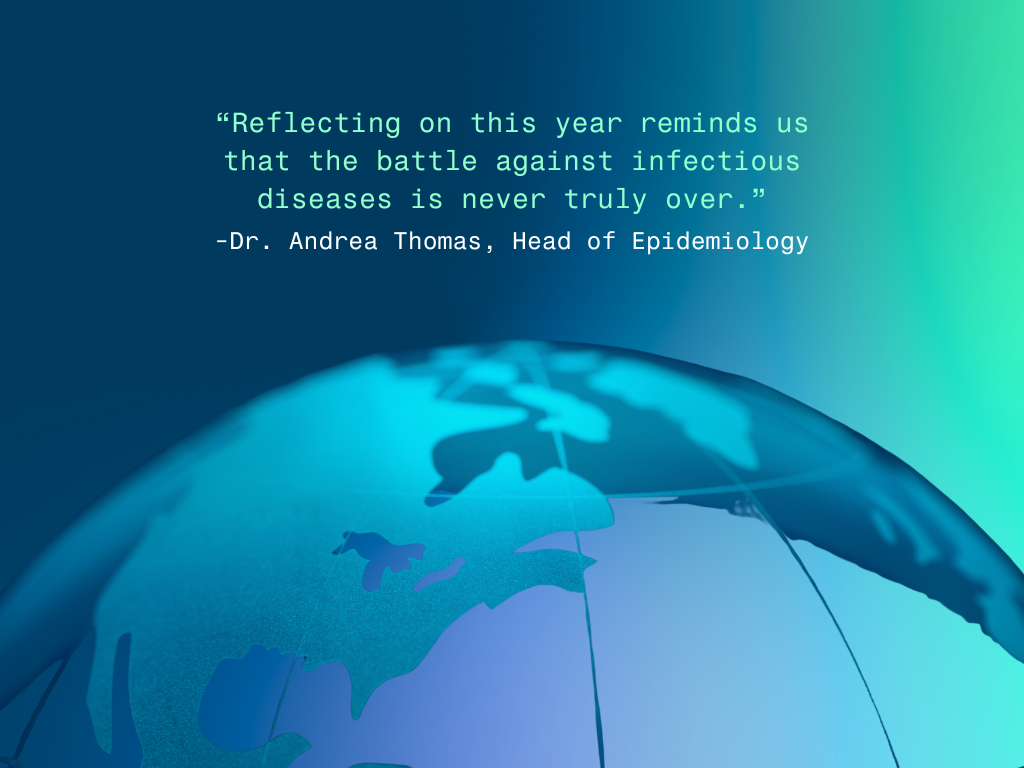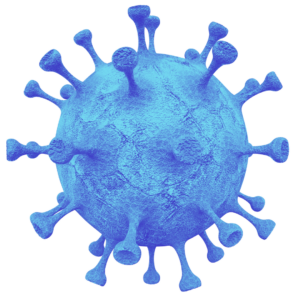Empowering Chicago
BlueDot enables the City of Chicago to make time sensitive, intelligence-driven decisions that protect their residents’ health and livelihoods.
“The ability to pull actionable intelligence into a flexible internal system creates for a really robust ecosystem that can be used to solve problems”
Dr. Peter Ruestow, Director of Epidemiology in the Chicago Bureau of Health Protection
Challenge
The City of Chicago engaged BlueDot in 2018 to enhance the capacity of the Chicago Department of Public Health (CDPH) to scan disparate global information sources to proactively identify threats in a routine and timely way. Previously, CDPH relied heavily on partner networks such as the Centers for Disease Control and Prevention (CDC) or state health departments as their source of global infectious disease intelligence.
This approach left the onus on CDPH to triage news and decide if the threat was likely to reach Chicago. With a desire for intelligence that was more timely, accurate, and contextualized, the City of Chicago engaged with BlueDot in 2018.
Solution
BlueDot is an important piece of CDPH’s informatics strategy to build a “Data-to-Action” framework that empowers intelligence-backed decision making. CDPH is working to centralize their intelligence across multiple sources into a single data system so epidemiologists and staff can access information in a streamlined and effective way. This approach enables information to be combined across multiple sources, reduces the onus of managing multiple interfaces, and ultimately leads to data-driven actions.
CDPH incorporates BlueDot’s services into its Public Health Emergency Preparedness program activities, which include working with CDPH infectious disease subject matter experts to assess risk, perform community assessments, execute surveillance and response priorities, and optimize resource allocation. BlueDot’s near real-time intelligence is used to both identify and prioritize infectious disease events across the globe which may pose risk to Chicago communities. To complete this analysis, CDPH leverages BlueDot’s intelligence on disease event alerts and assessments, global case activity, importation risk, and disease activity trends.
In addition, CDPH leverages BlueDot’s Intelligence Reports to improve infectious disease education and thought leadership within the City of Chicago. These Intelligence Reports are read by Chicago’s epidemiologists and shared with leadership teams, the public health commissioner, and in some cases the Mayor’s office to inform time-sensitive, high-stakes decisions regarding disease threats.
Benefits
With BlueDot, the City of Chicago now has the line-of-sight required to protect Chicago residents and their economy from infectious disease threats. CDPH can quickly and accurately identify when an infectious disease threat emerges, assess the risk of it importing to Chicago, and attain the supporting information required to inform planning and actions.
BlueDot’s support in developing and managing an internal global surveillance program allows CDPH to focus on engaging with community partners to prepare for and respond to identified threats. CDPH and BlueDot will continue to strive to build community trust by sharing timely information about emerging infectious disease threats, promoting data transparency, and leveraging modern and innovative approaches.
Future
Looking to the future, CDPH will continue to improve infectious disease surveillance and response with the support of BlueDot. As a partnership, BlueDot and CDPH are innovating and exploring new types of intelligence, such as wastewater data and baseline or endemic level of a disease to identify thresholds for early action. With BlueDot’s global surveillance engine, in-house experts, and data science expertise, CDPH will remain at the forefront of infectious disease intelligence and continue to protect Chicago residents and their economy from infectious disease threats.









